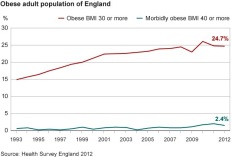I have the pleasure of being a friend of Malcolm Parlett, a senior Gestalt therapist and practitioner, who has recently published Future Sense, in which he offers a radical rethink and new perspectives on human wellbeing and global sustainability. During the past couple of years, I have come to respect and care about him personally, his wisdom and great understanding of the world we live in.
When, last week Malcolm sent me the twelve reasons why he will vote “Remain” I knew it wo uld be a document worth reading, particularly for people still in the undecided camp. I am delighted to publish his paper here on my blog and maybe it will help in decision making.
uld be a document worth reading, particularly for people still in the undecided camp. I am delighted to publish his paper here on my blog and maybe it will help in decision making.
TWELVE REASONS WHY I SHALL VOTE FOR REMAIN:
ONE
I must vote – a tiny contribution towards the huge decision. But how shall I know? The ding-dong of verbal argument and exchanges of guesswork do not do justice to the weight of what’s required. I realise I need to draw on my own “whole Intelligence” – that is, take a long view, attend to what deeply resonates within me as being true and wise, honour my convictions and values, and make as mature a judgement as I can – recognising I am a reasonably well-informed ordinary citizen but not an economist or diplomat. I notice that when I engage with my whole intelligence, the answer is clear: I shall vote for the UK to stay within the EU, not to walk away from it.
TWO
Uncertainty is inevitable – none of us knows the future. In a card game, a player can stay with the hand they have, realising that in time they can exchange cards they do not want. Alternatively, the player may opt to discard their whole hand – a vote to leave. But why would they want to exchange all the known cards for a bunch they cannot know? The answer: Only if the cards they have are so appalling that they believe they cannot do worse. Well, the EU isn’t perfect – we all know that – but it’s not all rubbish either. On this analogy, my inclination is to stay, not quit. The Remain campaign acknowledges there are difficulties and challenges in being part of the EU. By contrast, the Leave campaign fails to acknowledge ANY benefits and advantages of being in the EU! That degree of one-sidedness strikes me as absurd.
THREE
I have multiple identities. We all do. I am a Londoner (by birth), English, British, a UK national, European, and a citizen of the world. Each of these is valid and important to me, and each carries a sense of belonging, rights, and responsibilities. My grandchildren have roots in England, Scotland, Spain, Ireland, and Denmark, as well as the USA and Columbia. Like other families, we visit other European countries, and welcome friends and colleagues from across the continent. I treasure the breadth and depth of my European identity, and do not want this part of me diminished or dishonoured. Those voting to quit the EU believe our freedom of movement and contact with the rest of Europe will not be adversely affected. I do not believe them.
FOUR
The Referendum campaign has reminded me that when I travel to other European countries, I often notice things that strike me as civilised, efficient, and relaxed in ways we seem to have lost in Britain. It’s possibly a “grass is greener” reaction. But in terms of indices of social wellbeing, education, and health, the UK often comes out poorly compared to other European countries. In other words, we are not in position to strut around and regard ourselves as superior, or that “we can do without Europe”. I am someone who is proud to be British AND I also think it’s healthy to have close access to other countries’ experience – and to learn from them sometimes. An economic lens is not the only one to look through. Other kinds of influence enrich our collective life.
FIVE
In Britain we tend to follow America culturally and politically. If we quit the EU, and thereby weaken our European connections, I fear the UK might become even MORE Americanised than we already are. I remember before the Bush/Blair war against Iraq, how other European countries stood against the UK taking part in it. I know who was right, and to whom I wish our government had listened. English-speaking Britain stands in a bridge position between America and the rest of Europe. Overall, we have benefited immeasurably from this position. Blowing up part of the bridge would not advantage us – rather we would be less relevant internationally. In an age of increasing interdependence, the bridge is a prize worth fortifying.
SIX
Across the globe, Britain is perceived as a central player in the EU, along with France and Germany – the big three. I imagine that to quit the EU would be seen by the rest of the world not as an act of strength but of weakness: like someone walking away from their family or sports team in an act of pique and pride. From a distance, such public departures are seen more objectively – often as pathetic and narcissistic protests that prove to be short-sighted and self-damaging. Some never recover their position and dwindle in importance. The political fallout of Leaving could well be similar: a loss of status in the world – a sign of political unreliability and national decline.
SEVEN
I profoundly mistrust a number of politicians who advocate Leave. Nigel Farage, Boris Johnson, David Owen, George Galloway, and Michael Gove do not have identical politics, but all are political mavericks, who enjoy being oppositional, wanting to stand out against the mainstream of opinion. They like to exaggerate differences, have a very high regard for their own talents, and are happiest when questioning assumptions which are widely shared. In this great matter, regarding the dangers of an isolated Britain, the weight of informed opinion is overwhelmingly in favour of remaining in the EU. The listed individuals command attention because conflict is entertaining media-wise, and they are psychologically disposed to attract attention to themselves. But this does not mean they are right in what they say. I prefer to listen to other political figures – like Alan Johnson, John Major, Vince Cable, Caroline Lucas, Hilary Benn, Sadiq Khan, Kenneth Clarke, and Margaret Beckett – who strike me as altogether more mature political figures, and are all very clear in wanting Britain to Remain in the EU.
EIGHT
I understand the romantic attraction of “Britain standing alone”, or of celebrating “Englishness”. I have huge pride in my country. But I think such feelings are best confined to support of the English cricket team, or pleasure in UK universities scoring well in world rankings. They should not take away from sober attention to safeguarding the UK’s position geopolitically. With the rise of other economic and political powers – like China, South-East Asia, India, South America – our remaining solidly part of Europe’s alliances feels prudent and strategic. NATO is also part of our geopolitical positioning, and it would be just as absurd for us to withdraw from that alliance at this point in history. The sinews of connection to our immediate neighbours deserve to be strengthened not squandered.
NINE
The idea that “Britain independent and outside the EU” would somehow become “free of regulation” is distinctly optimistic. We have a pronounced UK tendency for regulation quite independently of the EU – witness what’s happened to our doctors and teachers. The EU’s emphasis on employment and social protections has been taken for granted and appreciated yet may not be understood as largely EU-driven. Billionaire newspaper proprietors do not like EU regulation, any more than they like regulation of the press. My own sense is that the EU has often “raised standards” in areas where British lawmakers left alone might well have dragged their feet – environmentally, for instance.
TEN
At the root of all right-wing popular movements – whether nazis and fascists in the past or Trump, Le Pen, Wilders, Farage, and (shockingly) much of the pro-Brexit press today – one finds certain states of mind that are deliberately cultivated: first, fears and insecurities (for example, “we’ll be over-run, we’ll lose our identity, Brussels will bully us”); second, promises of simple solutions, (“pull out of the EU and all will be well”); and third, a tendency to blame others (“Brussels, migrants, eurocrats”). All three tendencies reflect a narrowing of minds and attitudes. We cannot allow such impoverishment of our national character. We have a mature and tested tradition in Britain – to be internationalist, tolerant, diversified, inclusive. We’ve long been a trading nation, and have welcomed refugees, exiles, and successive waves of migrants – many of whom have been talented and who have brought valuable new ideas and ways of working, (and cooking!) to our shores, from which we have all benefited.
ELEVEN
There will always be forces at work favouring go-it-alone nationalism and assertive self- promotion. To maintain a balance, human beings and human societies also need rules of engagement to offset unbridled pursuit of self-interest. British political maturity is demonstrated when we uphold the need to compromise as well as pragmatically advancing our own case. We gain influence and respect by fashioning agreements and building collaborations. The EU, with its institutions and compromises and its late-night negotiating is not perfect, but it represents the dogged, grown-up work of peaceful cooperation over time. We need to remain part of the EU and to preserve, reform, and build upon this proven international framework – that commands huge respect around the world as a model of working cooperation. If Britain were to walk out of the EU now, it would be to pursue a smaller, more limited, meaner, and more parochial vision of our future – and to neglect the best of our past.
TWELVE
Those wanting to leave the EU overlook the strongest reason for staying as members: its effectiveness as a counter to war. The extent of disruption of people’s lives in 1945 represented a human catastrophe beyond anything previously known: what we are witnessing in Syria but vastly more extensive. Memories of war lessen over time: the absolute imperatives of “Never again!” and “Preserve peace at all costs” get eroded. Beginning in 1945, creating the various institutions of European cooperation was the unifying ideal by former enemies. It was their primary goal – supreme above all others – to cement the bonds of connectivity to such a degree that war would become inconceivable. We have to keep this fundamental purpose of the EU in mind, and strengthen rather than weaken its structure. This was its founding purpose. We forget it at our peril.
May 18th, 2016, by Malcolm Parlett, author of Future Sense: Five Explorations of Whole Intelligence for a World That’s Waking Up, Troubador, 2015. http://www.fiveexplorations.com


 rm ambitions of their girl audience? The “Jungle Exploration” or “Mining Experts Site” sets are clearly designed and marketed to their boy users, without pink or pastel shades in evidence.
rm ambitions of their girl audience? The “Jungle Exploration” or “Mining Experts Site” sets are clearly designed and marketed to their boy users, without pink or pastel shades in evidence.
 uld be a document worth reading, particularly for people still in the undecided camp. I am delighted to publish his paper here on my blog and maybe it will help in decision making.
uld be a document worth reading, particularly for people still in the undecided camp. I am delighted to publish his paper here on my blog and maybe it will help in decision making. speaking Arabic on the phone and reported him to the staff. He had been sharing with his uncle in Baghdad his excitement of having just attended an event where the UN Secretary General, Ban Ki-moon, had spoken. Once off the plane, he was asked “Why were you speaking Arabic in the plane?”
speaking Arabic on the phone and reported him to the staff. He had been sharing with his uncle in Baghdad his excitement of having just attended an event where the UN Secretary General, Ban Ki-moon, had spoken. Once off the plane, he was asked “Why were you speaking Arabic in the plane?”




